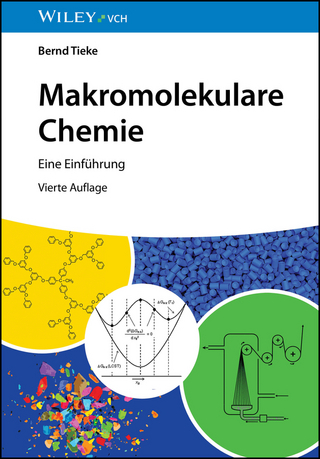
Bioactive Compounds in Edible Mushrooms
Springer International Publishing (Verlag)
978-3-031-80049-8 (ISBN)
- Noch nicht erschienen - erscheint am 10.11.2025
- Portofrei ab CHF 40
- Auch auf Rechnung
- Artikel merken
This handbook offers a comprehensive perspective of edible mushrooms' phytochemistry and explores the application of bioactive compounds from fungi in nutrition, medicine, and environmental sustainability. The book starts with an overview of edible mushrooms' bioactive compounds, followed by 5 parts covering the diversity, classification and taxonomy of common edible mushrooms, their environmental roles, sustainable harvesting practices, nutritional value and health benefits, and characterization and quality control of bioactive compounds. The book concludes with a perspective on emerging uses and trends in mushroom consumption utilization.
In this book, readers will find valuable insights into the latest trends and developments in the field, including how diverse edible mushroom species are used in culinary, medicinal, and ecological contexts. Particular attention is given to functional foods and the chemical composition of an extensive range of bioactive compounds in edible mushrooms, such as beta-glucans, polysaccharides, ergosterol, phenolic compounds, and triterpenoids. The book also explores the environmental impact of mushroom cultivation and the economic opportunities arising from the increasing demand for edible mushrooms and their bioactive compounds. Techniques and strategies for preserving mushrooms, detecting adulteration in the mushroom market, characterizing bioactive compounds, and ensuring quality control in production and distribution are thoroughly discussed.
This comprehensive overview serves as an invaluable resource for a wide range of professionals, including researchers, healthcare practitioners, nutritionists, food technologists, and anyone interested in tapping into the potential of edible mushroom bioactive compounds for the improvement of health, nutrition, and sustainability.
Dr. Sylvester Izah is a lecturer at the Bayelsa Medical University in Yenagoa, Nigeria, and he holds a Ph.D. in Applied Microbiology and Environmental Health, a M.Sc. in Applied Microbiology, and a B.Sc. in Biological Sciences from Niger Delta University, Nigeria. Dr. Izah worked for an environmental consultancy firm for over six years, focusing on soil, water and atmospheric assessment. In the course of his career, he carried out studies on vegetation and biodiversity concerning species diversity and composition. With 220+ peer-reviewed publications including articles and book chapters, Dr. Izah's research is mainly focused in the fields of applied microbiology and plant biotechnology, herbal medicine, public and environmental health, risk assessment, bioenergy, toxicology, and biodiversity.
Dr. Matthew Chidozie Ogwu is an Assistant Professor of Integrated Ecology and Sustainable Development at the Appalachian State University, United States of America. He obtained his Ph.D. in Biological Sciences from Seoul National University, South Korea, and his M.Sc. (Distinction) and B.Sc. (First Class Hons.) in Plant Diversity and Conservation and Plant Biology and Biotechnology, respectively, from the University of Benin, Nigeria. Dr. Ogwu has published 90+ peer-reviewed works and presented his results at international conferences. His research focuses on sustainable environmental development, soil microbial and geographical ecology, economic plant characterization for breeding and conservation, ethnobotany and biodiversity issues and policies. During his time as a Lecturer and Researcher at the University of Benin, Nigeria, and the Centre for Floristic Research of the Apennines, Italy, he taught courses within the integrated natural sciences, mentored numerous students, collaborated with experts from diverse backgrounds and contributed to the European Union-funded NATURA LIFE research project on biodiversity and ecosystem management inthe Central Apennine region of Italy.
Dr. Muhammad Akram is an Associate Professor in the Department of Eastern Medicine, Government College University Faisalabad, Pakistan. He received his Ph.D. from Hamdard University Karachi-Pakistan. Dr. Akram was a chairman of the Department of Eastern Medicine and Surgery, University of Poonch, Rawalakot Azad Kashmir, Pakistan from 2015 to 2017. He serves as an editor and invited reviewer of several national and international journals. He has numerous publications and presentations to his credit, and he is an active member of several professional societies. Dr Akram has authored and co-authored 16 books, 74 book chapters and 350+ journal articles. Dr Akram's research interests include hyperuricemia, xanthine oxidase inhibition by some selected medicinal plants, enzyme inhibition, Indusyunic medicine, phytochemistry, poisonous plants, bioactivity, and phytopharmaceutical evaluation of herbal drugs and their natural products,biochemistry, and bioinformatics.
Introduction.- Diversity and Environmental Issues.- General Usage and Nutritional Potentials of Edible Mushrooms.- Health Benefits of Bioactive Compounds in Edible Mushrooms.- Preservation Adulteration Methods of Characterization and Quality Control of Bioactive Compounds in Edible Mushroom.- Future Prospect and Conclusion.
| Erscheint lt. Verlag | 10.11.2025 |
|---|---|
| Reihe/Serie | Reference Series in Phytochemistry |
| Zusatzinfo | XX, 1180 p. 150 illus., 100 illus. in color. |
| Verlagsort | Cham |
| Sprache | englisch |
| Maße | 155 x 235 mm |
| Themenwelt | Naturwissenschaften ► Chemie ► Organische Chemie |
| Schlagworte | Antioxidants • Bioactive Compounds • disease prevention • edible mushrooms • Environmental Health • Functional Foods • medicinal properties • mushroom extracts • Mushrooms sustainable utilization • Pharmacological activities • Phytochemicals |
| ISBN-10 | 3-031-80049-4 / 3031800494 |
| ISBN-13 | 978-3-031-80049-8 / 9783031800498 |
| Zustand | Neuware |
| Haben Sie eine Frage zum Produkt? |
aus dem Bereich


